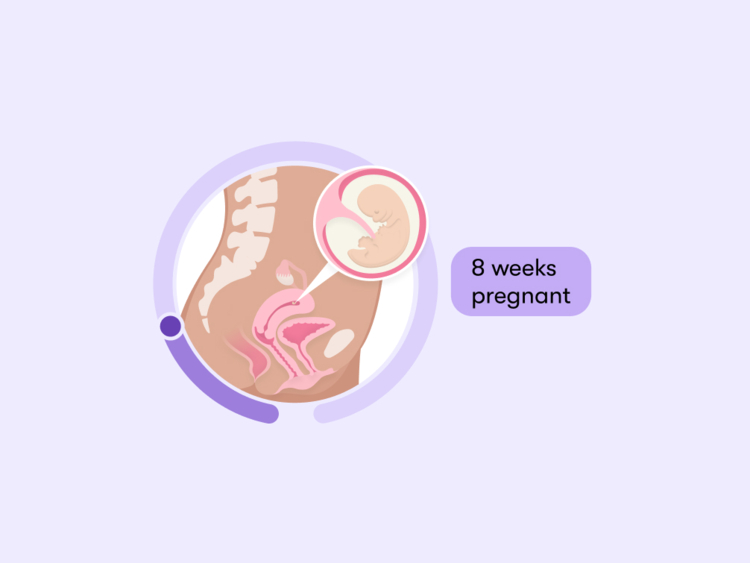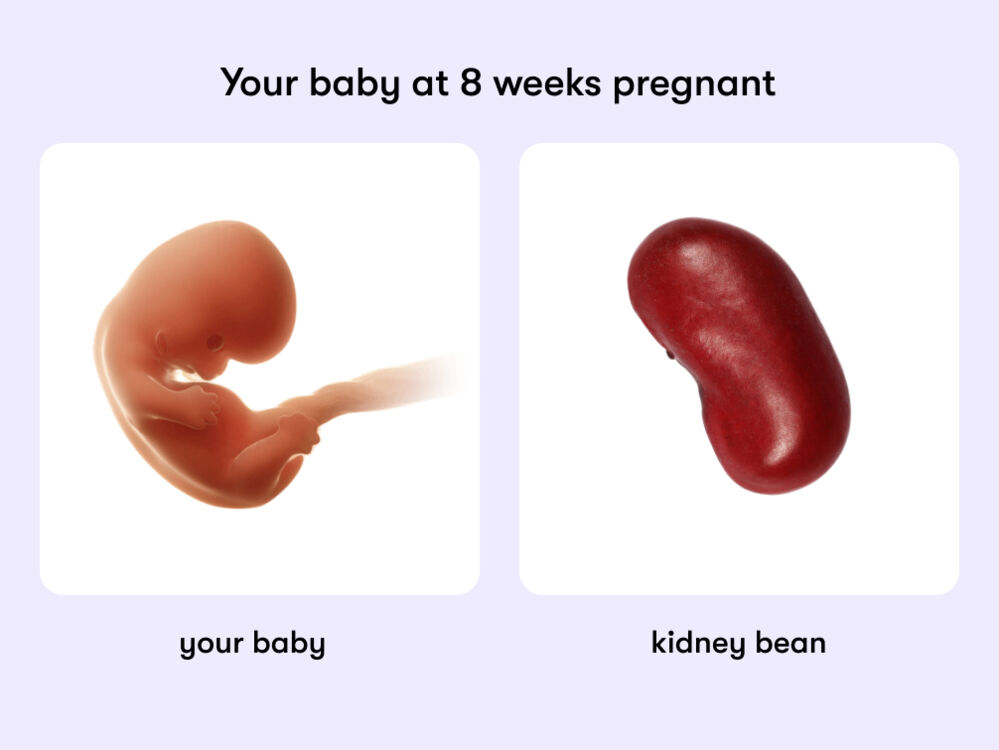Being 8 weeks pregnant can be an emotional time. You’re well into your first trimester, and if you haven’t already, you may be thinking about telling family and friends about your pregnancy. Know that there’s no right or wrong time to share your news; it’s simply when you feel ready. For some, that’s right away, while others might wait until after their first ultrasound scan at around 10 to 14 weeks of pregnancy. You do what’s right for you.
You may not be able to see your bump just yet, but rest assured that your body and your baby both change in pretty monumental ways during early pregnancy. Maybe you’ve started feeling some of those telltale pregnancy signs such as nausea, mood changes, and needing to pee a lot more than usual — or equally, maybe not. Navigating this time can be exciting but also confusing. So if you’re curious as to what you might be feeling at 8 weeks pregnant, then read on for our guide, with advice from a Flo expert.
Your baby at 8 weeks pregnant
Developing their heart
Let’s take a look at how your baby is changing right now. At around 8 weeks pregnant, your baby’s heart will continue to develop and get stronger. While your baby’s heart will have been forming from as early as 4 weeks pregnant, it’ll be more fully developed by now. It’ll change from being a cluster of cells to connected tubes that can circulate blood. Clever, huh?
Forming teeth
At 8 weeks pregnant, you’re into your second month, and your baby is starting to take a more human shape with a larger head and developing body and limbs. Alongside your baby’s major organs developing, their face is also becoming more defined as the eyes, ears, and nose become more distinct.
Most babies don’t start teething until around 6 months of age. However, at 8 weeks, tiny teeth buds have already formed in their mouth, which will one day become their teeth.
How big is a baby at 8 weeks?
Length (crown to rump): 1.6 cm or 0.6 in.
Weight: Too small to calculate accurately
Size: Equivalent to a kidney bean
All measurements are approximate and vary within the normal range.



